There are two problems that I do not understand. First, the error message on the console. It does not give me the whole error message. Therefore I do not understand the issue at all :S The IDE is STS.
Second, why do I get this error, "JsonMapping failed to lazily initialize a..."
@Test
public void testUpdateCar() throws Exception {
Car car = carRepository.findById(new Long(1)).get();
car.setBrand("Mazda");
car.setModel("326");
String putJSON = objectMapper.writeValueAsString(car);
mockMVC.perform(MockMvcRequestBuilders.put(String.format("/api/cars/%d", car.getId())).contentType(MediaType.APPLICATION_JSON_UTF8).content(putJSON))
.andDo(MockMvcResultHandlers.print())
.andExpect(MockMvcResultMatchers.status().isCreated())
.andExpect(MockMvcResultMatchers.content().contentType("application/hal+json;charset=UTF-8"));
}
Car:
@Entity
public class Car {
@Id
@GeneratedValue(strategy = GenerationType.IDENTITY)
private Long id;
@OneToOne
private User owner;
private String brand;
private String model;
private String color;
private String plate;
private String additionals;
Update 1: The error itself:
com.fasterxml.jackson.databind.JsonMappingException: failed to lazily initialize a collection of role: me.eraytuncer.carpool.entity.User.carList, could not initialize proxy - no Session (through reference chain: me.eraytuncer.carpool.entity.Car["owner"]->me.eraytuncer.carpool.entity.User["carList"])
Update 2:
@Entity
public class User {
@Id
@GeneratedValue(strategy = GenerationType.IDENTITY)
private Long id;
private String firstName;
private String lastName;
private String phone;
private String email;
@OneToMany(cascade = CascadeType.REMOVE, mappedBy = "owner")
private List<Car> carList;
Update 3:
@PutMapping("/cars/{id}")
ResponseEntity<?> replaceCar(@RequestBody Car newCar, @PathVariable Long id) {
if (repository.existsById(id)) {
newCar.setId(id);
Resource<Car> carResource = assembler.toResource(repository.save(newCar));
try {
return ResponseEntity
.created(new URI(carResource.getId().expand().getHref()))
.body(carResource);
} catch (URISyntaxException e) {
e.printStackTrace();
return ResponseEntity.status(HttpStatus.INTERNAL_SERVER_ERROR).build();
}
} else {
throw new CarNotFoundException(id);
}
}
Update 4:
Adding @JsonIgnore solved the issue somehow. Maybe it was a misleading issue caused by infinite recursion?
